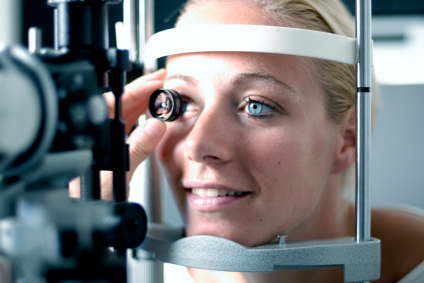Treating diabetic retinopathy with both laser and anti-VEGF injections may be the best way to treat patients with diabetic macular edema. Diabetic macular edema is the most common “side effect” of diabetic retinopathy and is the leading cause of vision loss in patients with diabetes.
The results of a large, multicenter, randomized clinical trial compared several permutations of laser and the anti-VEGF drug, Lucentis. Intraocular steroids were included as well.
To date, standard treatment, or the standard of care, includes treating the retina with laser photocoagulation to retard the loss of vision. Not all patients can be treated with this modality and intravitreal injections of anti-VEGF and also of steroids have been found to be useful treatment for those in whom laser is not applicable (myself included).
Whether or not a patient receives laser or injections, the treatment of diabetic macular edema is akin to “weeding” a garden. The treatments are not a cure, and just like weeding a garden, the “leakage” may be controlled for a time, but only to return.
In short, diabetic macular edema recurs and requires retreatment.
The study found that injections of Lucentis/ranibizumab followed by either prompt or deferred laser for 6 months, was superior to laser treatment alone. The study also found that this combination was superior to a similar combination treatment with intraocular steroids.
In addition, intravitreal injections of anti-VEGF and laser (immediate +/- deferred) led to the most improvement in vision, resolution of macular edema and, over a two year period, required fewer treatments!
What Does This Mean?
Diabetic macular edema is often difficult to treat. The number of tools we have to treat the disease was quite limited until the introduction of intraocular steroids and anti-VEGF. Over the past few years, because of these additional modalities, we have been able to help more patients than with just laser alone.
This new study not only validates the use of anti-VEGF medications, but also hints that anti-VEGF may be superior to steroids. More studies will tell.
Most importantly, however, the study describes a treatment regimen that leads to improvement, stabilization and reduction in the number of treatments!
This means better vision and fewer office visits, right?
